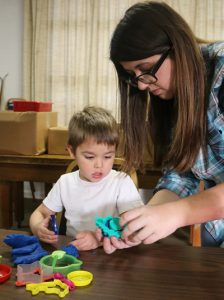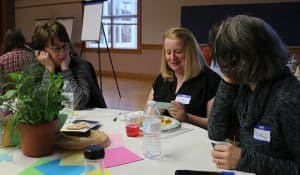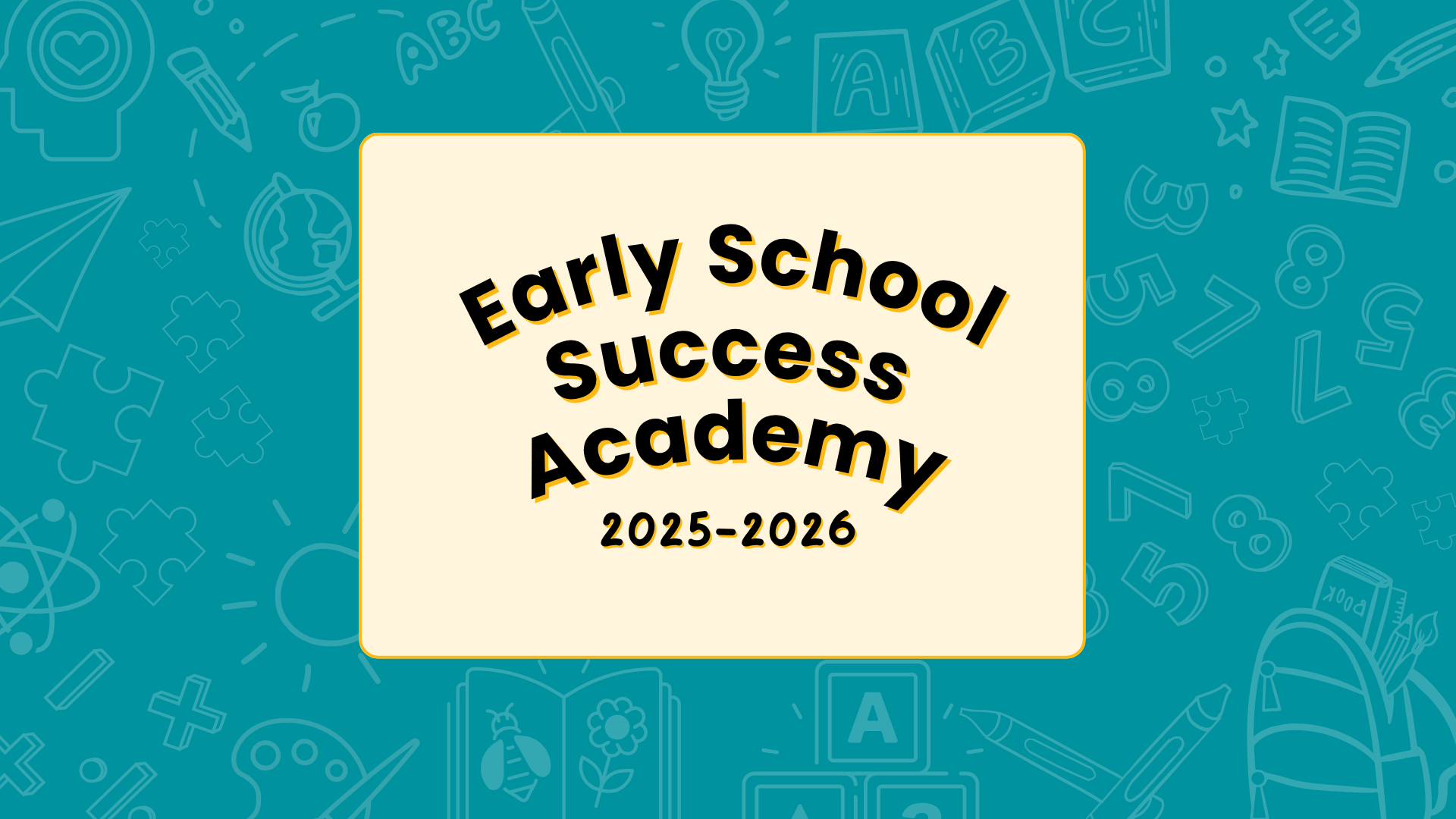
Child care is provided at community meetings so parents and caregivers can attend.
Residents of Yoncalla and two other North Douglas County communities say they need better access to health care, mental health services, healthy fresh food, and secure housing.
Those are the top needs that surfaced recently in the planning stage of a North Douglas County Community Health Needs Assessment conducted by Portland State University for the Yoncalla Early Works program, a partnership between Children’s Institute, Yoncalla School District, and The Ford Family Foundation.
Researchers from Portland State University’s Center for Improvement of Child and Family Services will study those needs in more depth this fall to get a better grasp of them and the best ways to meet them.
Early Works wants to address Yoncalla health problems because they can undermine the program’s core goal of improving children’s early learning and school success. Children who are healthy physically, socially and emotionally have an edge in school and are more likely to succeed, says Callie Lambarth, the PSU research associate who is heading the health assessment.
In the assessment’s planning phase, community members, local parents, and school and organization representatives had the opportunity to provide input to the research team and help shape the focus of the assessment. Researchers held eight meetings to explore community context and local data.
The researchers compiled existing health indicators for North Douglas County, where about 5,000 people live. The region, which sees about 40 births a year, has an infant mortality rate of 15 per 1,000 births, three times the state average; and 80 births per 1,000 to teenagers, which is more than twice the state average of 28. Nearly half of the residents, 44 percent, live below 200 percent of the federal poverty line, and 48 percent of the children qualify for government subsidized free and reduced-price meals. North Douglas County residents exceed the state average in rates of cancer, heart disease, chronic lower respiratory disease, injuries, diabetes and flu pneumonia.
Despite all these barriers to health, community members are coming together and dedicating their time and effort to this process. As one community member stated in the report: “Healthy, happy children are the heart of our community,” and that sentiment has been echoed time and time again from parents.
Researchers engaged community groups and discussed big questions such as: What does health look like? What services do families need and want? What needs to happen for services to be available and accessible?
The community must be involved in the assessment so that it can buy in to the findings and action plans that follow, says Elena Rivera, health policy and program adviser for Children’s Institute.
“You have to have true engagement and partnership from the very beginning,” she says. “It is incredibly important to have parents engaged and to have partners engaged from the start, because they know their community best and can guide us through the process.”

Yoncalla community members identify health needs at the Community Health Assessment kickoff meeting.
The health assessment is looking beyond Yoncalla to all of North Douglas, because no single community has the resources to address residents’ health needs, says Erin Helgren, Yoncalla Early Works site liaison. But if towns pool resources, they may be able to bring a doctor, nurse or mental health worker to the area, she says. The health assessment planning meetings also help draw together the North Douglas communities of Elkton, Drain and Yoncalla around a common purpose, Helgren says.
“Typically, there is an undercurrent of competitiveness between the three communities,” she says.
It also makes sense to make the health assessment regional, she says, because the North Douglas communities are collaborating on other education efforts such as P-3 (prenatal through grade three) Alignment, a program sponsored by the Oregon Community Foundation and other foundations to better connect families and early learning providers to schools, and the Early Learning Kindergarten Readiness Partnership and Innovation Fund supported by the state’s Early Learning Division.
The kickoff meeting for the health assessment planning on February 25 of this year brought together 45 community members, mayors and representatives of schools, service providers and organizations from the three towns in the forested hills of North Douglas. They met in the Drain Civic Center at the Mildred Whipple Library. Superintendents of two school districts and a principal from the third all spoke about the importance of working together, Helgren says. The leaders were “poignant and symbolic” in standing together, she says.
Community members concluded the next phase of the health assessment should focus on the needs for better access to affordable housing, fresh food, and health care, including mental health services. The assessment will look at barriers to services, such as long distances and limited transportation, and the best ways to address those.
Helgren says in North Douglas County she has seen pregnant women unable to access prenatal care, a child in foster care who could not make the 40-mile drive to Roseburg for counseling, and a woman with schizophrenia whose husband had to take a day off from work once a month to drive her to Roseburg for therapy.

Visualizations of a healthy community.
PSU launched the next phase of the assessment in August by convening a steering committee made up of community and local organization leaders and parents to decide on what more information they need to collect and how to collect it, Lambarth says. (“We are going to narrow the focus even further,” she says.) Research shows that stable and healthy families and nurturing parents are key to a child’s health. Involving parents in this assessment process is critical.
The region may want to expand its local health services, Lambarth says. If residents decide, for example, they want a part-time primary care physician, PSU researchers will use information collected in community surveys and meetings to recommend what days, times and places the doctor should be available.
Researchers expect to complete the health assessment by the end of the year. They will then work with the community to develop an action plan for next spring.

